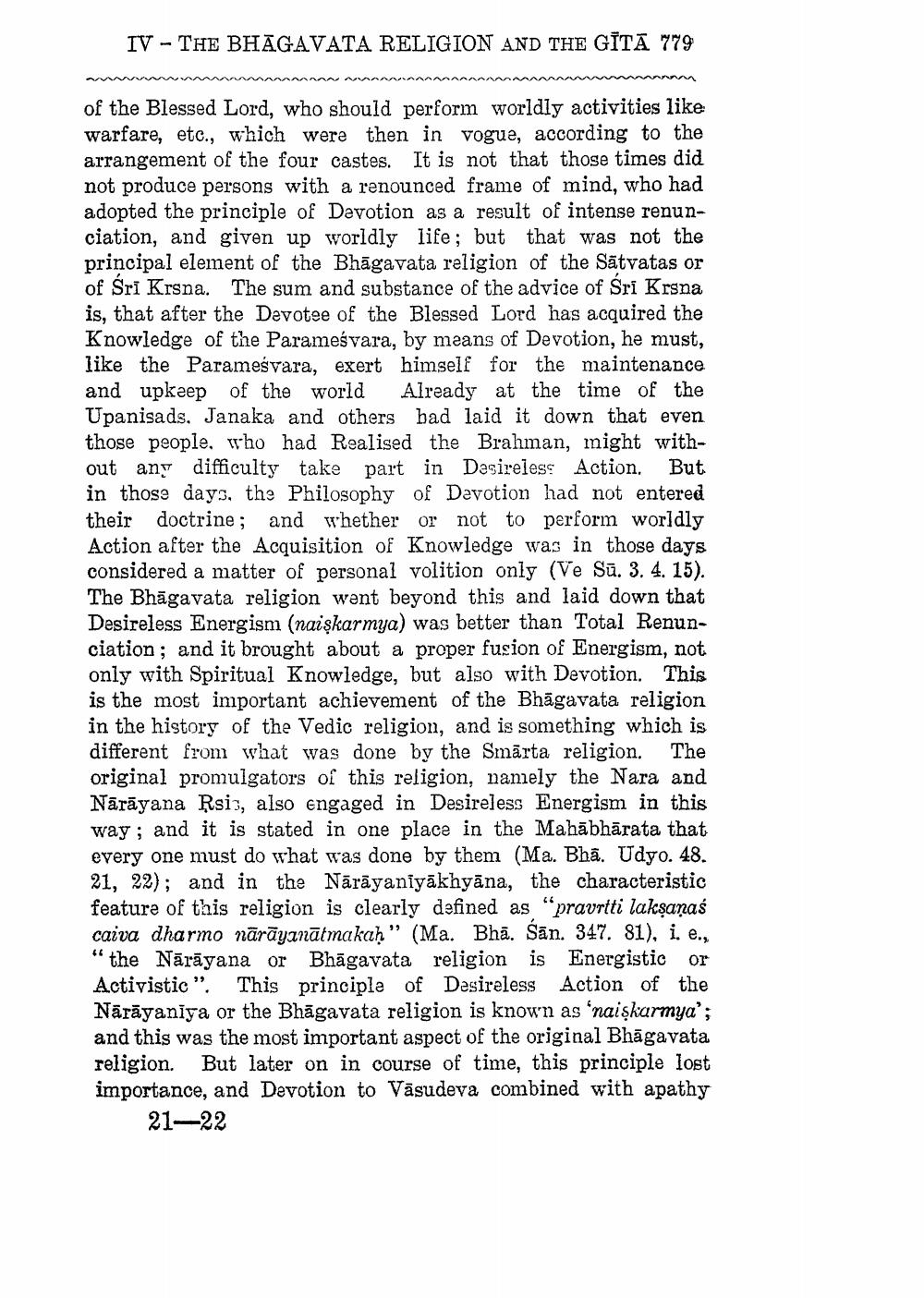________________
IV - THE BHAGAVATA RELIGION AND THE GĪTĀ 779
of the Blessed Lord, who should perform worldly activities like warfare, etc., which were then in vogue, according to the arrangement of the four castes. It is not that those times did not produce persons with a renounced frame of mind, who had adopted the principle of Devotion as a result of intense renunciation, and given up worldly life; but that was not the principal element of the Bhagavata religion of the Sätvatas or of Sri Krsna. The sum and substance of the advice of Sri Krsna is, that after the Devotee of the Blessed Lord has acquired the Knowledge of the Parameśvara, by means of Devotion, he must, like the Paramešvara, exert himself for the maintenance and upkeep of the world Already at the time of the Upanisads, Janaka and others had laid it down that even those people, who had Realised the Brahman, might without any difficulty take part in Desireless Action. But in those days, the Philosophy of Devotion had not entered their doctrine; and whether or not to perform worldly Action after the Acquisition of Knowledge was in those days considered a matter of personal volition only (Ve Sū. 3. 4. 15). The Bhāgavata religion went beyond this and laid down that Desireless Energism (naiskarmya) was better than Total Renunciation; and it brought about a proper fusion of Energism, not only with Spiritual Knowledge, but also with Devotion. This is the most important achievement of the Bhāgavata religion in the history of the Vedic religion, and is something which is different from what was done by the Smārta religion. The original promulgators of this religion, namely the Nara and Nārāyana Rsis, also engaged in Desireless Energism in this way; and it is stated in one place in the Mahābhārata that every one must do what was done by them (Ma. Bhā. Udyo. 48. 21, 22); and in the Nārāyaniyākhyāna, the characteristic feature of this religion is clearly defined as "pravrtti laksanaś caiva dharmo nārāyanātmakaḥ" (Ma. Bhā. Sān. 347. 81), i. e., " the Nārāyana or Bhāgavata religion is Energistic or Activistic". This principle of Desireless Action of the Nārāyaniya or the Bhāgavata religion is known as 'naiskarmya'; and this was the most important aspect of the original Bhāgavata religion. But later on in course of time, this principle lost importance, and Devotion to Vasudeva combined with apathy
21-22




